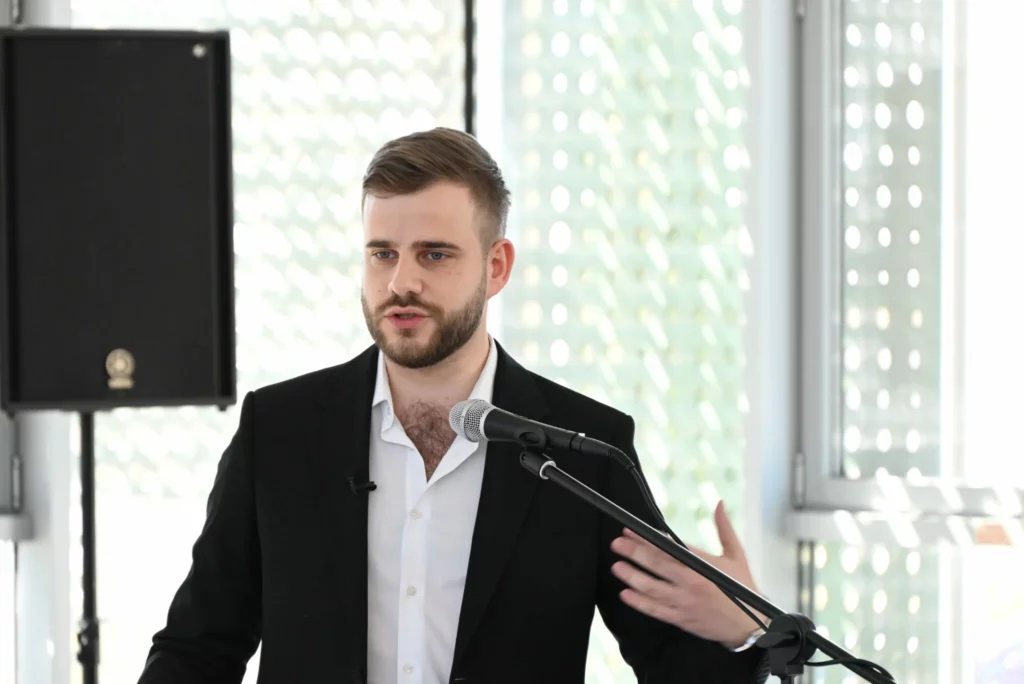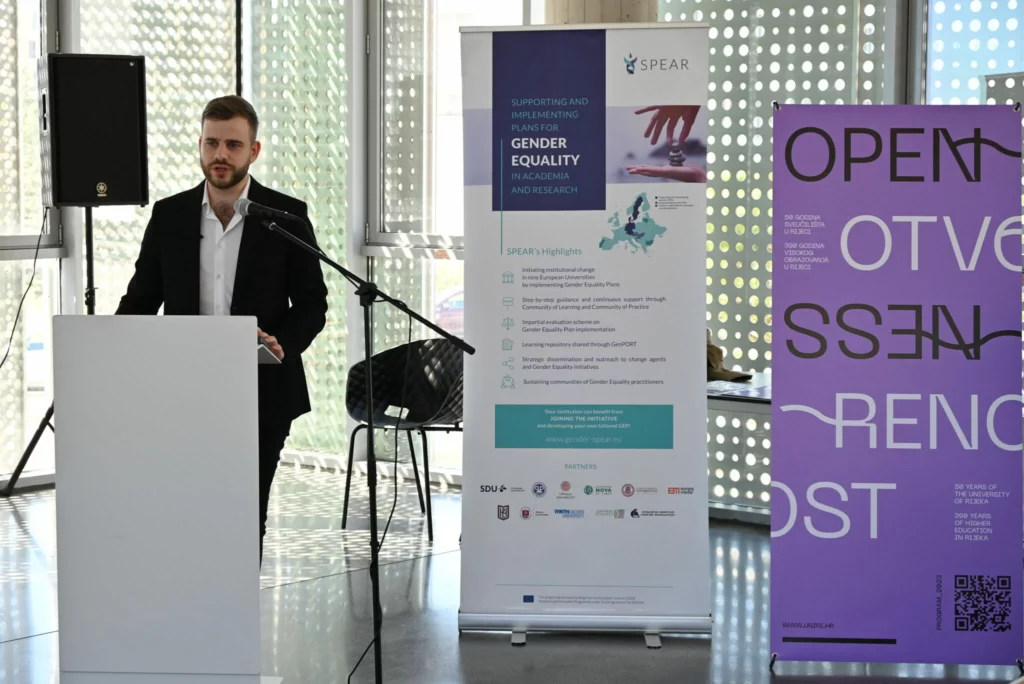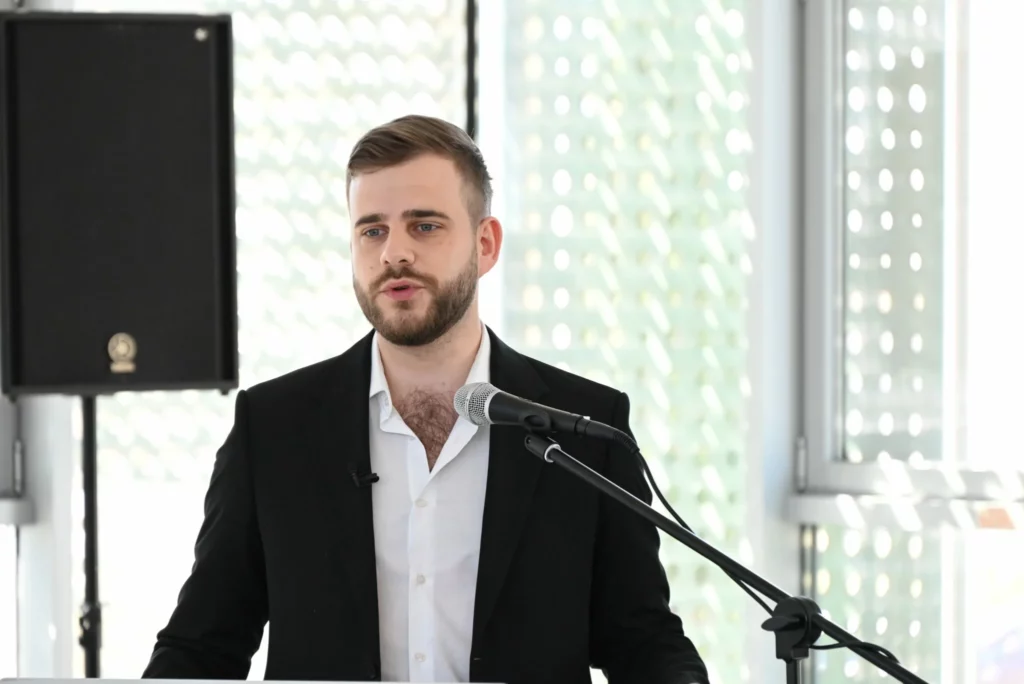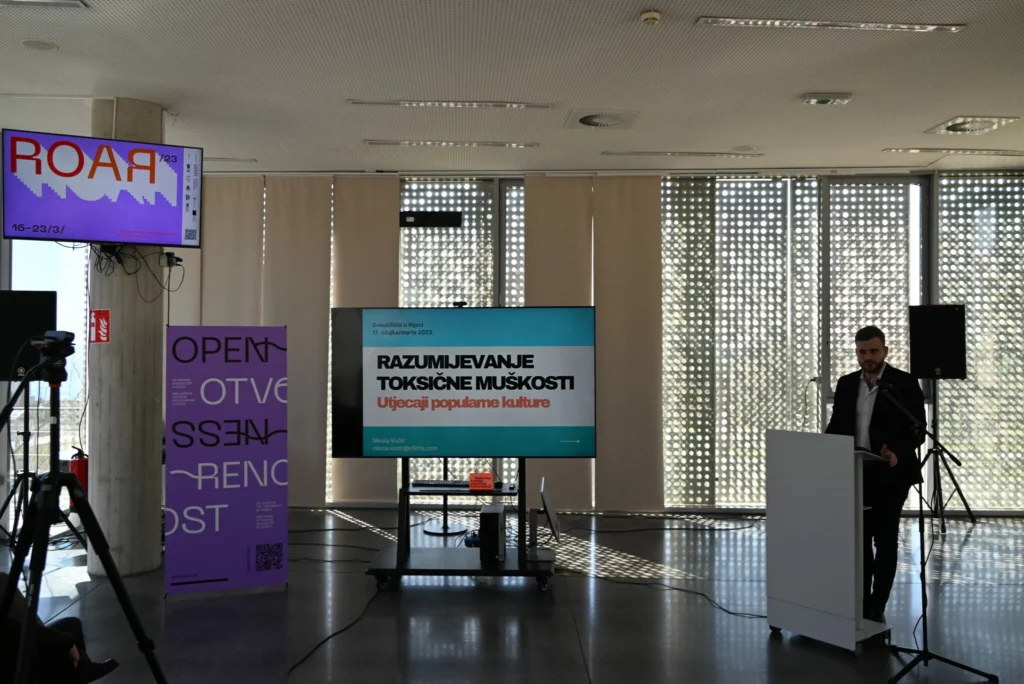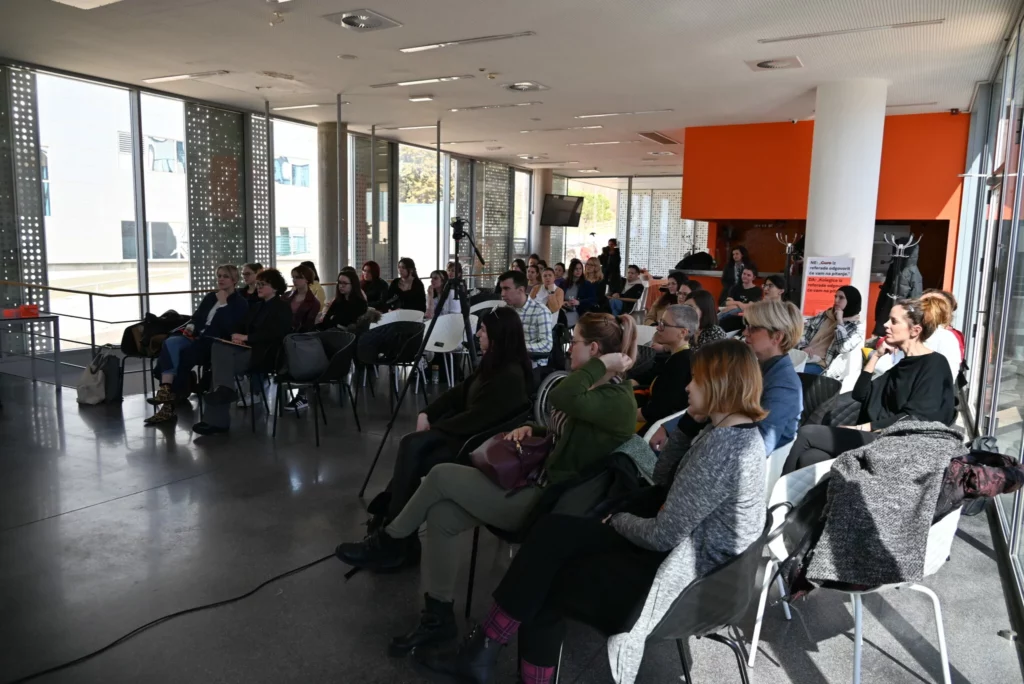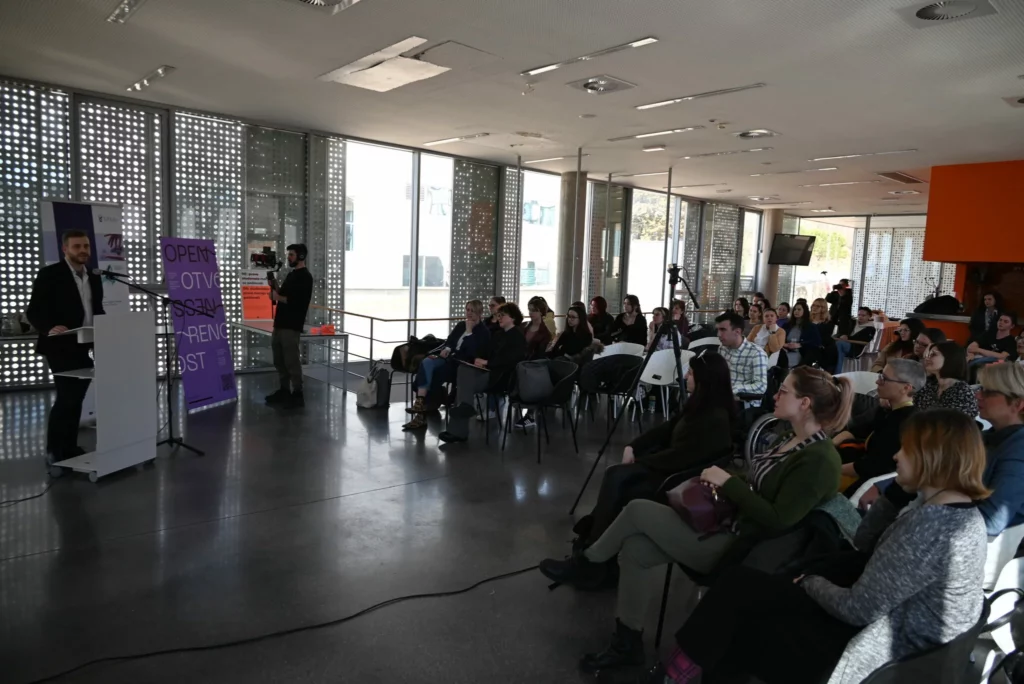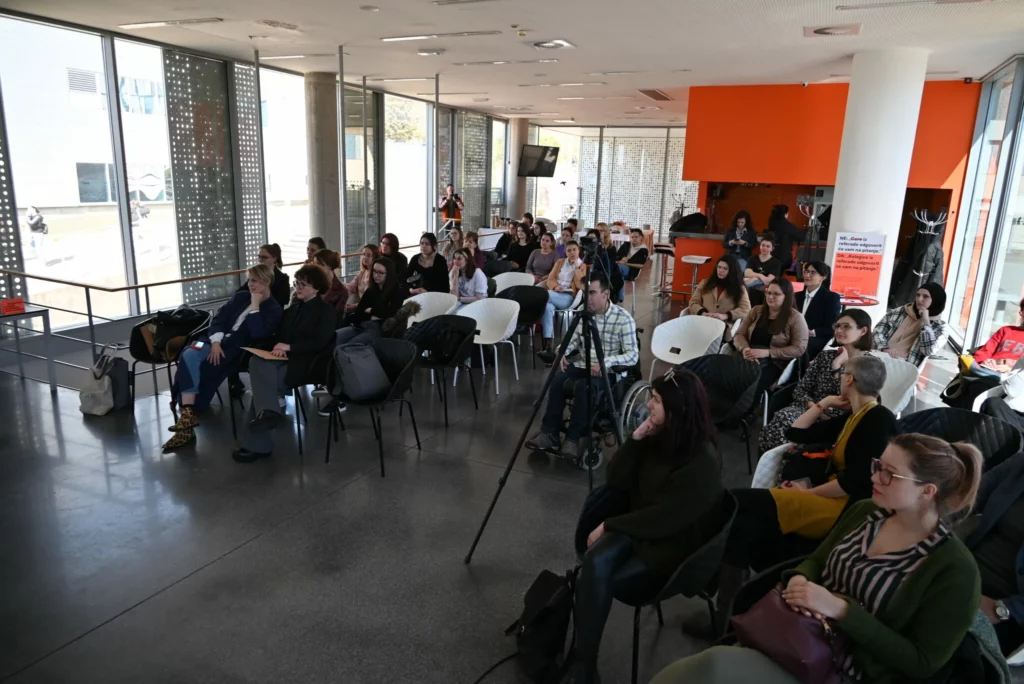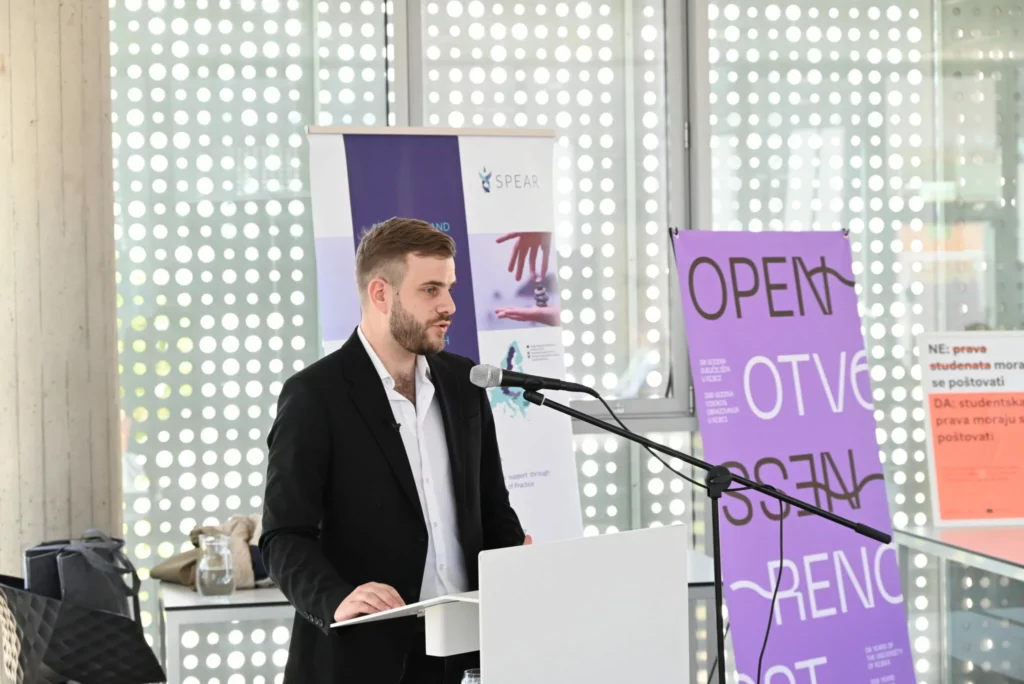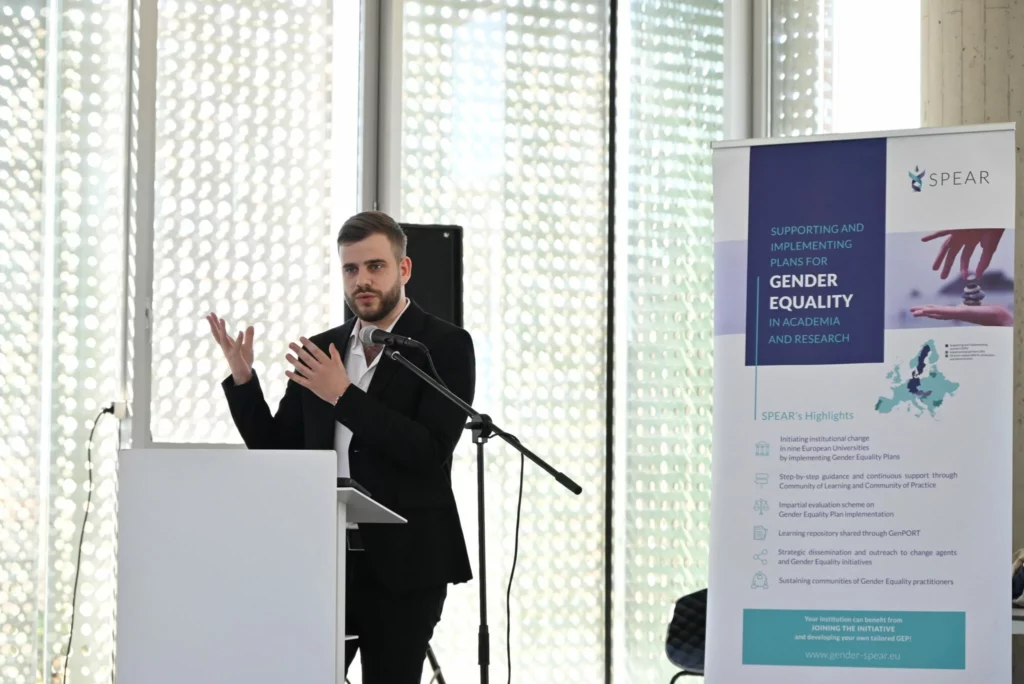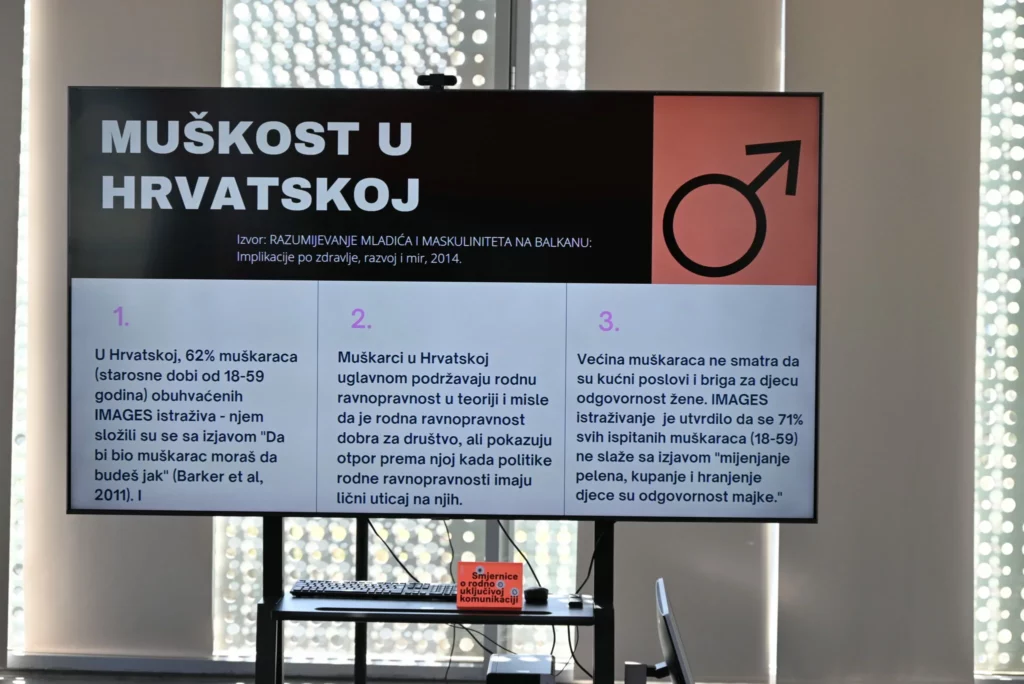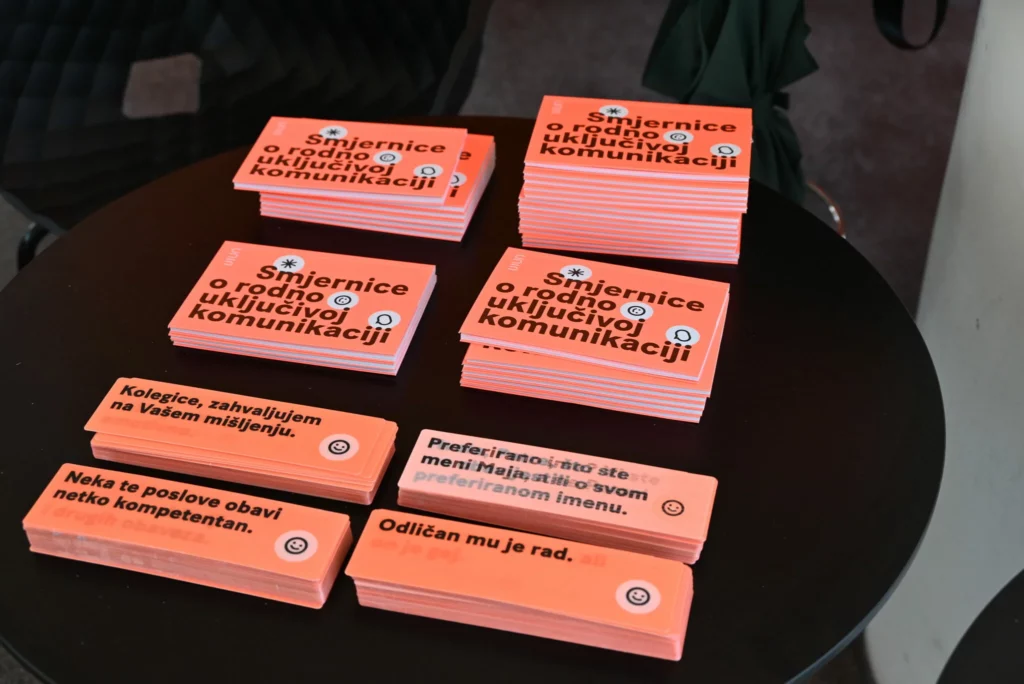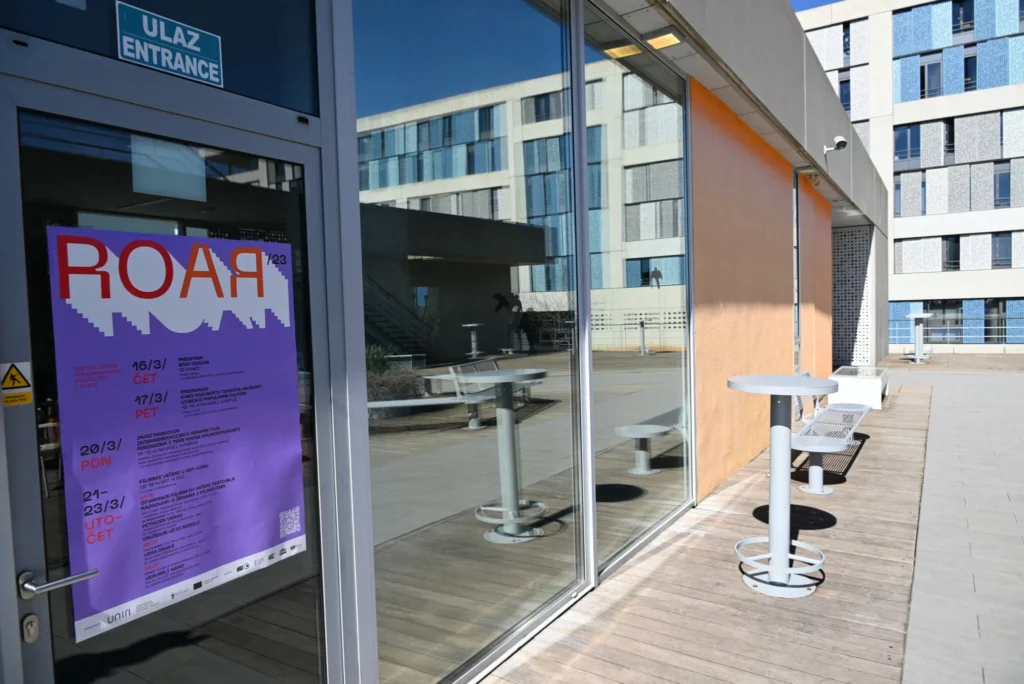As part of the gender equality festival ROAR, and within the scope of celebrating the 50th anniversary of the University of Rijeka, Mr. Nikola Vučić, TV journalist, researcher, publicist, editor, and host of the show “Izvan okvira” on N1 television in Bosnia and Herzegovina, held a lecture entitled ”How to understand toxic masculinity: influences of popular culture” on Friday, March 17, 2023, at the University of Rijeka Campus.
Toxic masculinity is a problem that affects all of us and can have negative consequences on mental health, interpersonal relationships, and social norms. Through popular culture, including movies, TV shows, and music, toxic masculinity takes root in society, which can lead to aggression and violence. It is important to openly discuss this issue at hand and highlight the consequences brought by toxic masculinity. However, it is also important to offer solutions that promote positive and healthy models of masculinity, that support equality and respect for diversity. Through the promotion of these values, we can work to create healthier and happier communities, which are based on respect for others, regardless of gender. Ultimately, understanding toxic masculinity through popular culture is extremely important to developing a better understanding of gender equality and creating a positive society for all.
The lecture was part of the activities of the University of Rijeka within the UNIGEM project (University and Gender Mainstreaming), coordinated by the TPO Foundation from Sarajevo, with the support of the Government of the United Kingdom.
Nikola Vučić was born in Mostar in 1995. Already at the age of 20, he became the youngest anchor of ”Dnevnik” on Federal Television in Sarajevo, where he worked as a journalist and anchor for a year. In 2016, he switched to N1 television. He is the author of a series of journalistic articles shown in the program of Federal Television, later for N1. In his work, he deals with topics from educational and cultural policies to peacebuilding and human rights. For him, journalism is, as he says, “one of the possible and more important forms of social engagement, but first and foremost an objective view of everyday social life”.
He is the recipient of many awards and accolades, among which is the UN Women in BiH Journalism Award, awarded by the Association of BiH Journalists and the XY Association, in the category of TV journalism of the year for reporting on the topic of gender-based violence. He is also the recipient of the award awarded by the Commission for Achieving Gender Equality of the House of Representatives of the Parliamentary Assembly of Bosnia and Herzegovina, and the Recognition for Contribution to Gender Equality, awarded in cooperation with the Agency for Gender Equality of the Ministry of Human Rights and Refugees of Bosnia and Herzegovina.
